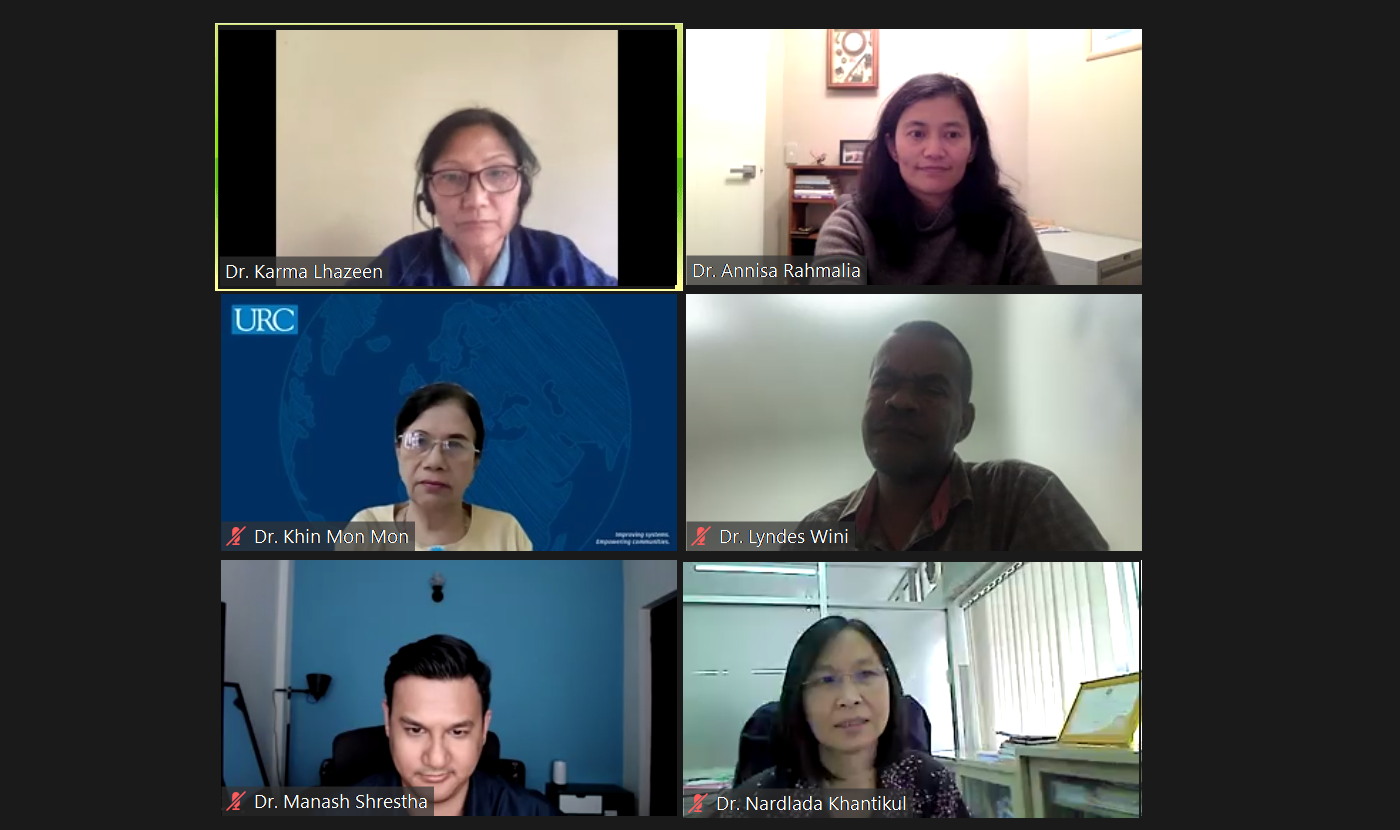
Lack of patient adherence to antimalarial drugs continues to pose a challenge to the 2030 malaria elimination goal of many countries in the Asia Pacific region. In particular, adherence to the current WHO-recommended P. vivax relapse prevention treatment of a 14 day course of primaquine (PQ14 days) or a weekly course of primaquine over 8 weeks (PQ8 weekly) has shown to pose considerable adherence challenges. Recognizing the importance of this persistent issue, the APMEN Vivax Working Group (VxWG) has released an evidence brief that collates available evidence on adherence of vivax patients to primaquine for the prevention of relapse in the Asia Pacific region and also draws from the learnings on adherence to medication for other diseases.
This brief seeks to provide National Malaria Programs (NMPs) and other stakeholders working in antimalarial response in the region with a clear understanding of the current evidence and strategies for improving patient adherence to primaquine. It should aid the formulation and integration of appropriate interventions into routine activities. The brief is available here.
In addition, the APMEN VxWG brought together a diverse panel of speakers from the Asia Pacific to highlight various aspects of patient adherence to primaquine in an APMEN TechTalks webinar organized on 23rd June 2022. Moderated by the VxWG Chair, Dr Karma Lhazeen, the webinar contributed to extending the conversation in and around patient adherence, through presentations from the panelists and the discussion in the Q&A session that ensued.
Some key messages and considerations that have been identified through the presentations and discussions from the TechTalks webinar are detailed below:
- Community norms and perceptions are important considerations for patient adherence. Raising awareness of what primaquine is and does for patients can be a good starting point for changing people’s perceptions. Do we know whether patients understand primaquine treatment in our respective contexts?
- The role of healthcare workers is crucial in helping patients adhere to treatment. Health messages developed as part of improving adherence should meet the needs of healthcare workers and patients considering cultural complexity and ethnic diversity. This should not hinder implementation – it is possible to ensure evidence-based and needs-based development of health messages while also ensuring implementation continues. Are the health messages used in our respective contexts understandable to patients and health workers?
- Following up with patients to track adherence can be feasible to a certain point, and CSOs can be instrumental in community-based interventions.
- Some forms of patient adherence measurement can be integrated into routine case management and assist in effective monitoring and evaluation of the interventions. Can we pilot this in some areas to ensure it is feasible to integrate into routine settings?
- It is possible to implement all the above points in routine practices with a strengthened health system for addressing the issue of patient adherence for all treatments, to antimalarial drugs, and specifically for vivax radical cure.
The panelists included:
- Dr. Annisa Rahmalia, a post-doctoral researcher from the Menzies School of Health Research, Australia, and the Institute of Tropical Medicine, Belgium. Dr Rahmalia presented findings from her qualitative work on patient adherence in a high malaria burden community of Indonesian Papua: link
- Dr. Nardlada Khantikul, the Head of Division of Innovation and Research Development at the Office of Disease Prevention and Control Region 1, Ministry of Public Health, Thailand. Dr Khantikul elaborated on her extensive work on improving patient adherence through targeted and needs-based health messaging to both the patients and health workers in Northern Thailand. link
- Dr. Khin Mon Mon, the Malaria Technical Advisor, Eliminate Malaria Project, University Research Co., LLC. & Center for Human Services (URC-CHS), Myanmar. Dr Khin Mon Mon shared her experience of improving patient adherence to primaquine through community-based malaria interventions, especially the directly observed therapy (DOT), in Myanmar. link
- Dr Manash Shrestha, the Technical Coordinator of APMEN VxWG. Dr Shrestha outlined various ways to measure patient adherence to antimalarial drugs. link
- Dr. Lyndes Wini, the Head of the Case Management Unit of the National Vector-Borne Diseases Control Division, Ministry of Health, Solomon Islands. Dr Wini reflected on improving adherence and integrating these interventions into routine practice from the perspectives of a National Malaria Program: link
The video recording of the TechTalks webinar is available on YouTube
To help build on the evidence brief and the webinar discussions, and to facilitate the sharing of tools - the APMEN VxWG would like to invite anyone who has developed counseling messaging materials or any other helpful resources on patient adherence to share the material/s with the VxWG. The materials will help as a resource for application in many settings in the Asia Pacific and beyond. Ensuring proper credits to the program or organization who developed them, the materials will be spotlighted in our information hub at www.vivaxmalaria.org and made available to all stakeholders involved in eliminating malaria.
Please get in touch with the APMEN VxWG technical coordinator, Dr. Manash Shrestha, at shrestham-consultants@mmv.org for further collaboration.
